Film Name:繡春刀II:修羅戰場 / Brotherhood of Blades II: The Infernal Battlefield
[Note: This article contains some spoilers. Additionally, the film’s ending features an Easter egg connecting to “Brotherhood of Blades,” preceded by a playful subtitle line: “Due to budget constraints, we had to make the subtitles ourselves.”]
I went to see this movie yesterday with great enthusiasm and found it truly enjoyable. The most profound takeaway was the idea that “times create heroes.”
This phrase carries two layers of meaning for “Brotherhood of Blades II: The Infernal Battlefield”: First, it reflects on the plight of characters like Shen Lian and Lu Wenzhao. They aren’t truly “heroes”—merely ordinary people swept along by circumstances. Even if they resisted the current, it would only mean paddling a few more strokes before drowning, buying a few extra breaths. Second, it reflects the film’s reception outside the story—the acclaim and respect it received. While not outstanding, it’s far more earnest and sincere than most Chinese films currently on the market. In such an environment, it naturally became a widely recognized gem.
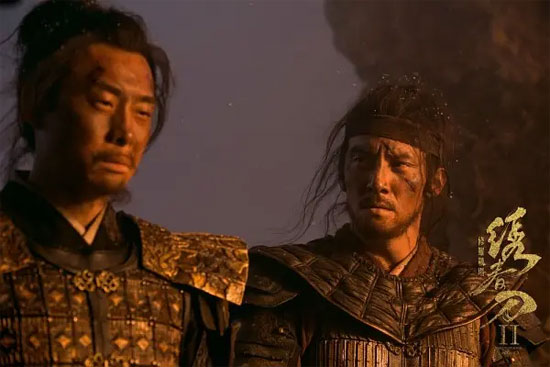
Looking back to 2014 when we watched “Brotherhood of Blades,” everyone was stunned by its unique charm—utterly different from “those flashy trash out there.” This period drama blended history, martial arts, political intrigue, action, and espionage, defying simple categorization. It was both innovative and masterfully crafted. Director Lu Yang and the entire creative team’s sincere dedication only heightened our anticipation for “Brotherhood of Blades 2.”
It suddenly strikes me that the protagonists’ journeys within the film mirror the film’s own critical reception outside the screen in a strangely parallel way.
The film opens at the climax of the Battle of Sarhu, a conflict that determined the fate of the Ming Dynasty. Shen Lian risked his life to save Lu Wenzhao and Guo Zhen, forming an especially deep bond with Lu Wenzhao.
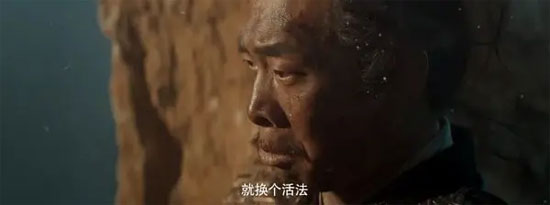
Surveying the battlefield strewn with corpses, Lu Wenzhao couldn’t help but lament, “Tens of thousands of lives, cut down like grass…” To alter such a fate, one must “choose a different way to live.”
Fast forward to the seventh year of the Tianqi reign. Lu Wenzhao has risen to become a thousand-house commander in the Northern Command, while Shen Lian has attained the rank of hundred-house commander. Yet, much like decades ago, the environment for domestic filmmaking hasn’t improved significantly… Just as depicted in the film, Shen Lian remained a lackey in a dying dynasty. Caught in the vast political struggles involving figures like Wei Zhongxian, Zhu Youjian, and the Emperor himself, he could not escape his fate as a pawn to be manipulated. For instance, when Yin Cheng, drunk and speaking carelessly, faced the danger of being dragged to the Imperial Prison, Shen Lian could not save him and could only tacitly allow him to take his own life.
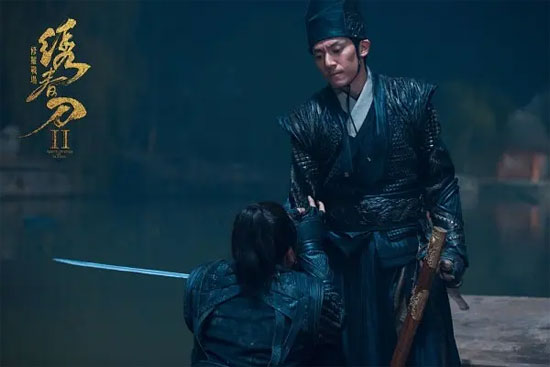
Yet alongside this resignation, Shen Lian inevitably wrestles with inner conflict—when he discovers the artist whose calligraphy he admires, the young beauty who shielded him from the rain, and the target of the Imperial Guards’ assassination, “Master Beizhai,” are one and the same person, he impulsively kills Ling Yunkai, driven by his true feelings.
Little did he know that at this very moment, he had already been completely drawn into the vortex of conspiracy…
Peilun is arguably the most intriguing and multidimensional character in the film. This is not merely because he’s the sole source of comedic relief, but due to the stark contrast in his persona. Initially grinning and joking while investigating Shen Lian, he later retorts defiantly, “I’m just out to get you,” when Shen confronts him. And just when everyone believes he’s been ambushed by Lu Wenzhao and is surely doomed, he seizes an opportunity to fight back, wounding Ding Tai and escaping…
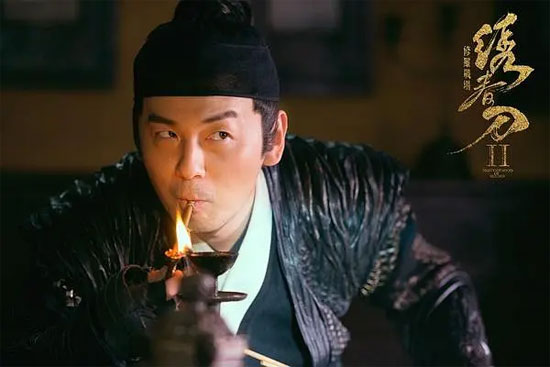
Even more ingeniously, I believe Pei Lun masterfully infused the “Book of the Impermanence” with nuance: In Ling Yunkai’s hands, it was merely a crude, fear-inducing tool for spreading gossip, framing others, and eliminating rivals. Yet Pei Lun elevated it, imbuing it with deeper significance.
In the scene where interrogating Master Jinghai yielded nothing, Pei Lun and his attendant clerk played off each other. The clerk wrote down words attributing support for rebels to Jinghai in the Book of Impermanence. Pei Lun feigned anger, tore out that page, and declared: “If you write this down, you will destroy Master Jinghai’s entire lifetime of cultivation.” ” He placed the shredded page on the table and looked at Jinghai again. The monk who had stubbornly protected Shen Lian earlier was now utterly defeated.
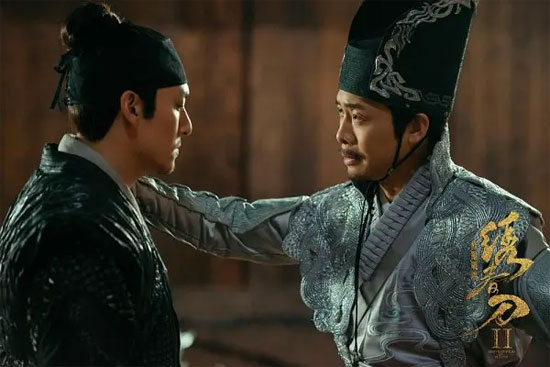
In contrast, other characters were tasked with portraying deep-seated bitterness and resentment. I believe Lu Wenzhao genuinely intended to protect Shen Lian at first. After all, he was his savior, and they’d maintained a close personal bond over the years… But after being exploited, Shen Lian refused to accept his fate entirely. He insisted on seizing control of his own future, gambling everything on a fleeting chance and a sense of loyalty—a gamble that ultimately provoked Lu Wenzhao’s righteous act of sacrificing his own kin. he and his junior sister Ding Baiying, along with other confidants of Zhu Youjian, still couldn’t escape the fate of being silenced. It was merely the difference between a cicada and a mantis—both destined to end up in the sparrow’s belly.
It is through the contrast with Lu Wenzhao that Shen Lian’s journey—from numb indifference to forced change, and finally to active resistance—is most vividly illuminated.
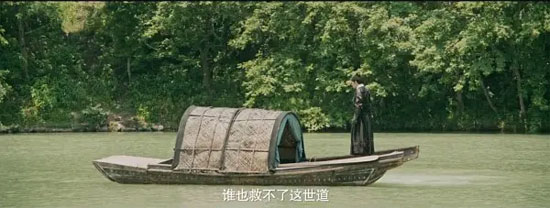
The one who witnessed Shen Lian’s transformation was none other than Beizhai, the Prince of Xin’s confidante. I won’t elaborate further, but one detail stands out: After learning of Prince Xin’s intent to silence witnesses, Shen Lian escorted Beizhai away with Pei Lun. Unable to bear revealing the brutal truth, he deceived the young woman, claiming the prince merely wished her to “lie low for now.” He even added, “so you can focus on your painting,” At this, Beizhai’s expression darkened as she murmured, “He’s never liked my literary pursuits, saying they invite trouble.” She then turned to Shen Lian and said, “Thank you.”
No explicit explanation was needed. The care, protection, understanding, and gratitude between them were all conveyed. It is precisely through such subtly crafted moments that the film achieves its overall nuanced and satisfying tone.
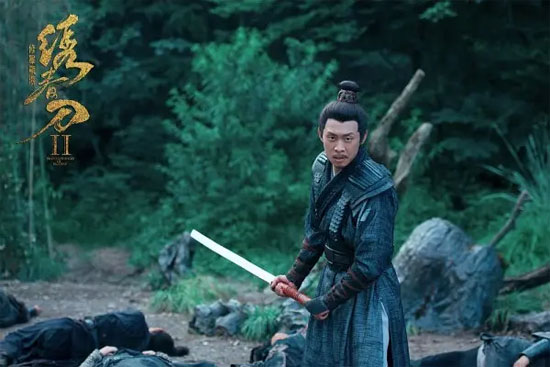
Of course, as I mentioned at the beginning, this film is “well-intentioned but not outstanding.” It’s clear that “Swordsman 2” has put more effort into its craft than its predecessor, showing significant improvement in action sequences, costumes, props, set design, cinematography, and editing. This dedication deserves applause… Yet in terms of storytelling, the film shows little progress—or even regression.
The first half holds its own, skillfully planting clues through a series of coincidences and mishaps to gradually sketch a conspiracy’s outline before peeling back the layers of truth. Unfortunately, the narrative quality plummets in the latter half—especially the final third—falling back on clichés and ultimately delivering a story that feels stale in its scope, tropes, themes, and execution.
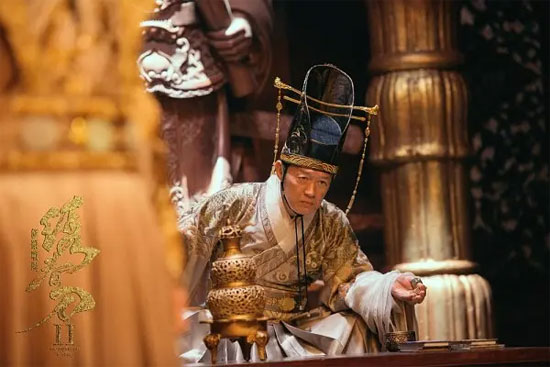
Yet, bolstered by its many strengths, “Brotherhood of Blades II: The Infernal Battlefield” remains quite enjoyable despite its less-than-stellar story… Not to mention its cast of audience favorites—Zhang Zhen, Zhang Yi, Jin Shijie, Lei Jiayin, and others—all deliver solid performances.
I’d also like to briefly address a peculiar phenomenon: it seems criticizing young actors like Yang Mi has almost become a form of “political correctness.” While her performance in this film isn’t particularly outstanding, she at least fulfilled her basic duties without being truly offensive to the audience. Our dissatisfaction with these celebrities and young stars stems from their lack of acting skill—their status and fame don’t match their effort or ability—not from baseless bashing… Reading comments like “Any movie with Yang Mi is trash” sends a chill down my spine: mindless bashing is just as terrifying as fanaticism, and in some ways, even more harmful.
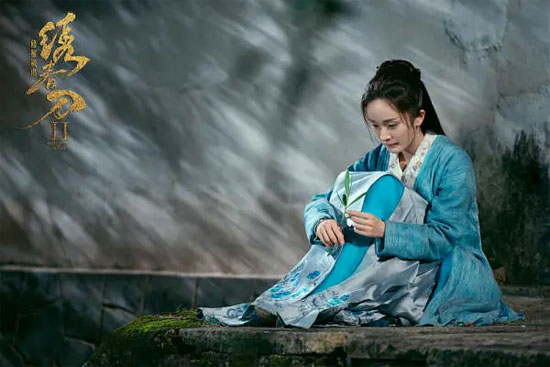
To put it another way, imagine a test paper scored out of 100. The final 20 points represent the challenging problems that demand innovation, groundbreaking ideas, and revolutionary milestones—the truly difficult questions. The remaining 80 points are the foundational problems everyone can see and grasp. While “Brotherhood of Blades II: The Infernal Battlefield” may not have nailed those 20-point challenges, its creators diligently answered the remaining 80 points correctly and thoroughly, avoiding major missteps.
Even if it doesn’t achieve a top score, a solid passing grade is assured—especially in a class where most students fail. Such a diligent, studious, and progress-driven student deserves genuine praise.
If only more Chinese-language films reached this level, our theaters would be a far more delightful place…
Please specify:Anime Phone Cases » Brotherhood of Blades II: The Infernal Battlefield 繡春刀II:修羅戰場 2017 影评: Great times breed great heroes.